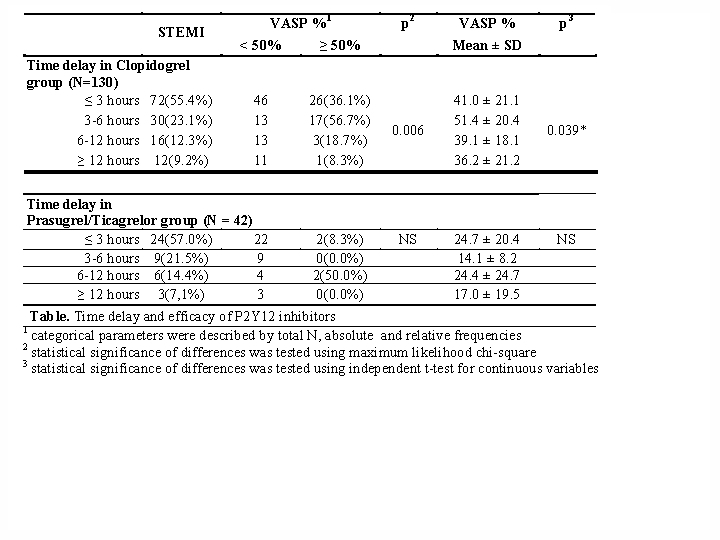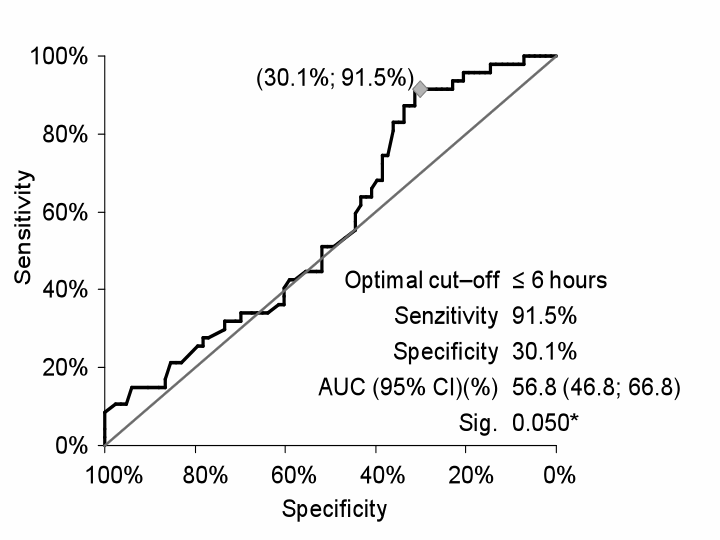TIME DELAY FROM SYMPTOM ONSET – TO – REPERFUSION AND LABORATORY EFFICACY OF P2Y12 INHIBITORS IN PATIENTS WITH STE-ELEVATION MYOCARDIAL INFARCTION TREATED WITH PRIMARY PCI
Background: The study aimed to investigate the association between time delay (TD) from symptom onset – to - reperfusion and efficacy of P2Y12 inhibitors in patients with STEMI treated with primary percutaneous coronary intervention (pPCI).
Methods: PCI registry data were analyzed. Inhibition of P2Y12 signaling was tested by VASP phosphorylation 20 ± 4 h after loading dose of a P2Y12 inhibitor (600mg Clopidogrel / 60mg Prasugrel / 180mg Ticarelor). High on-treatment platelet reactivity (HTPR) was defined as a VASP index ≥ 50%.
Results: Study group consisted of 152 patients with STEMI (63.0 ± 14.0, 66% men) in whom TD was known; 76% received Clopidogrel, 24% Prasugrel/Ticagrelor. The mean duration of investigated time delay was 261 ± 273 min. The HTPR was significantly more frequent in patients after 600mg clopidogrel with time delay < 6 hours. The effectiveness of Prasugrel/Ticagrelor in an inhibition of P2Y12 signaling is not influenced by duration of TD in STEMI patients treated with pPCI (Table).
Conclusion: The loading dose 600mg of clopidogrel fails to provide sufficient inhibition of platelet aggregation in patients with STEMI and pPCI. Our results support reloading with Prasugrel/Ticagrelor in patients with STEMI and pPCI who were initially loaded with clopidogrel, especially in early phase (TD to reperfusion < 6 hours).



